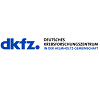- Jobsuche
- Heidelberg, DE
- Postdoctoral Scientist for Artificial Intelligence in Oncology

Postdoctoral Scientist for Artificial Intelligence in Oncology
DKFZHeidelberg, DEPostdoctoral Scientist for Artificial Intelligence in Oncology
Reference number : 2024-0357
Heidelberg
Full-time
Artificial Intelligence in Oncology
Research for a life without cancer" is our mission at the German Cancer Research Center. We investigate how cancer develops, identify cancer risk factors and look for new cancer prevention strategies. We develop new methods with which tumors can be diagnosed more precisely and cancer patients can be treated more successfully. Every contribution counts – whether in research, administration or infrastructure. This is what makes our daily work so meaningful and exciting.
The lab of Prof. Dr. Moritz Gerstung is seeking a
To support the work on spatial genomics analyses of brain tumours, the Division of Artificial Intelligence in Oncology is seeking a postdoctoral scientist to join the team as soon as possible. These ongoing large-scale studies investigate the molecular mechanisms governing the microanatomical organisation across the spectrum of brain tumours [1].
The work is based on spatial transcriptomics, proteomics and genomics methods which provide a detailed molecular read out for millions of cells found in tumour tissues [2]. The lab develops and uses a range of data science and AI methods to distill biological knowledge from these large spatially resolved data sets and to extract biomarkers of disease progression [3,4]. This work is also closely related to efforts in digital pathology which provides the means to translate spatial genomics findings to a routine clinical setting [5,6].
References :
1] Z. Seferbekova, A. Lomakin, L. R. Yates, and M. Gerstung, “Spatial biology of cancer evolution,” Nat. Rev. Genet., vol. 24, no. 5, pp. 295–313, May 2023.
2] A. Lomakin et al., “Spatial genomics maps the structure, nature and evolution of cancer clones,” Nature, vol. 611, no. 7936, pp. 594–602, Nov. 2022.
3] L. Marconato et al., “SpatialData : an open and universal data framework for spatial omics,” Nat. Methods, Mar. 2024, doi : 10.1038 / s41592-024-02212-x. Available : http : / / dx.doi.org / 10.1038 / s41592-024-02212-x
4] V. Kleshchevnikov et al., “Cell2location maps fine-grained cell types in spatial transcriptomics,” Nat. Biotechnol., Jan. 2022, doi : 10.1038 / s41587-021-01139-4. Available : http : / / dx.doi.org / 10.1038 / s41587-021-01139-4
5] A. Shmatko, N. Ghaffari Laleh, M. Gerstung, and J. N. Kather, “Artificial intelligence in histopathology : enhancing cancer research and clinical oncology,” Nat Cancer, vol. 3, no. 9, pp. 1026–1038, Sep. 2022.
6] Y. Fu et al., “Pan-cancer computational histopathology reveals mutations, tumor composition and prognosis,” Nat Cancer, vol. 1, no. 8, pp. 800–810, Aug. 2020.
Your Tasks
In this role, the candidate will engage in all relevant steps of the aforementioned research projects. This includes experimental design, development of statistical and AI methods, computational analyses of large data sets, manuscript writing and reproducible documentation. You will work in close collaboration with AI specialists, computational biologists, clinicians and experimentalists. Due to the sizeable complexity within these projects, the candidate is encouraged to help shape these projects, explore their own areas of interest, and contribute new ideas and approaches to our research efforts.
Your Profile
- Master's and PhD degree in life or physical sciences with focus on bioinformatics
- Strong academic track record evidenced by peer-revied publications, preprints or other research outputs such as code repositories
- Deep understanding of data science methodologies
- Coding proficiency in Python, including PyTorch and other machine learning libraries
- Knowledge of cancer biology
- Affinity for collaborative work across discipline boundaries, international experience is an asset
- Proficiency in spoken and written English
We Offer
Excellent framework conditions : state-of-the-art equipment and opportunities for international networking at the highest level
Remuneration according to TV-L incl. occupational pension plan and capital-forming payments
30 days of vacation per year
Flexible working hours
Possibility of part-time work
Family-friendly working environment
Sustainable travel to work : subsidized Germany job ticket
Our Corporate Health Management Program offers a holistic approach to your well-being
Develop your full potential : access to the DKFZ International Postdoc Program and DKFZ Career Service with targeted offers for your personal development to further develop your talents
div id="liquidDesign